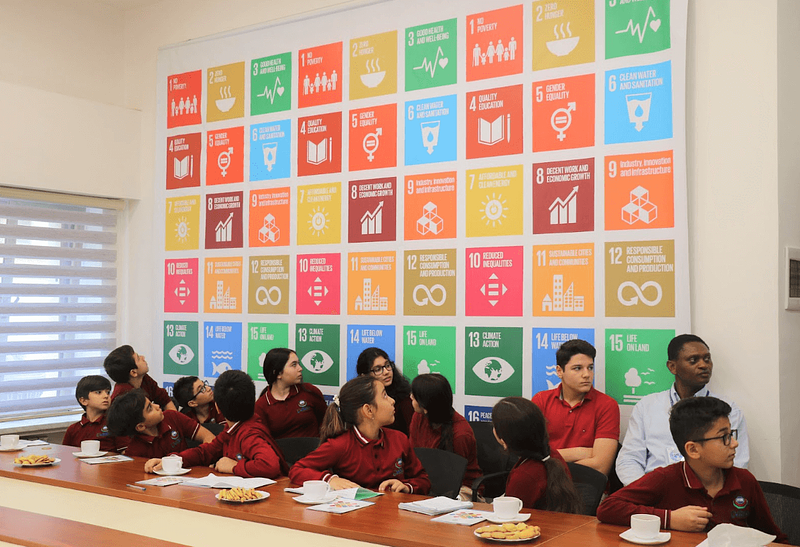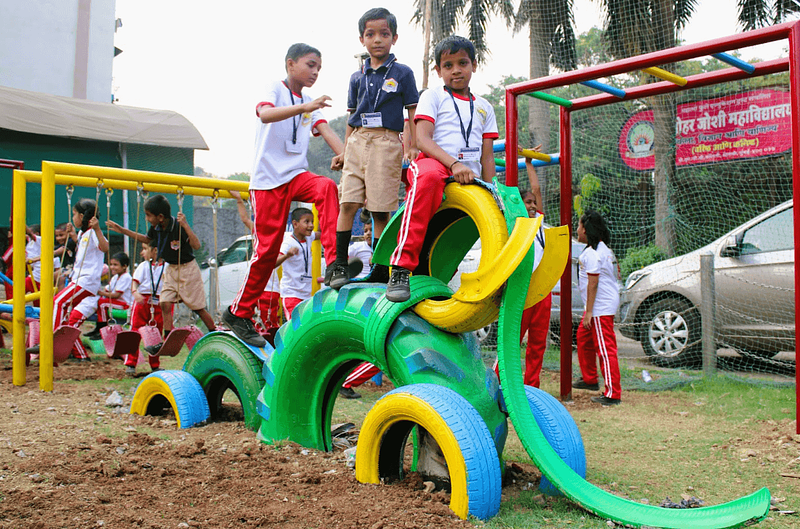Sustainability education, often referred to as Education for Sustainable Development (ESD), is a proactive strategy that equips students with the knowledge and skills necessary to confront pressing global issues like climate change, inequality, and biodiversity loss head-on. But it is not just about tweaking curricula- ESD embraces a holistic approach that takes into account both the student-teacher dynamics and the learning environment.
Stephen Sterling, a pioneering figure in sustainable education, categorises ESD along four dimensions: sustainable, tenable, healthy, and durable. Sustainable education sustains people, communities, and ecosystems; it is ethically defensible, operating with integrity, justice, respect, and inclusiveness; it is itself an adaptive, viable system, nurturing healthy relationships and emergence across various system levels; and, crucially, it works well enough in practice to sustain its own momentum while continuously growing.
Digging deeper into the movement to integrate sustainable development into education, I had a chance to chat with Amanda Abrom from the Global Schools Program (Global Collection 2023) and Swetha Manivannan from Anthill Creations, both stellar innovations shortlisted for HundrED's 2024 Global Collection.
As youth leaders like Greta Thunberg take centre stage in advocating for climate action, educators, policymakers, and communities globally are recognising the profound impact of instilling sustainability principles within education. Founded in 2018, the Global Schools Program takes an innovative approach by focusing on the educators themselves. The program recognises the lack of support and guidance available to teachers to effectively integrate sustainability into their teaching practices.

To address the problem, the Global Schools Program developed a free six-month teacher training program called the Global Schools Advocate program, comprising more than 30 lectures, audio podcasts, original readings, discussion prompts, and assessments.
"A lot of the teachers we work with are already passionate about the environment. Our role is to guide them in turning that passion into actionable change within their schools and communities. Many have been working with students for decades, so we empower them to lead their own sessions and share their insights” - Amanda Abrom
The organisation is an initiative of the United Nations Sustainable Development Solutions Network, which places them in a unique position to empower educators and support their voices within a larger global setting. Amanda notes that many educational policies struggle to “trickle down into classrooms.” In recognition of this problem, the programme aims to provide direct support for teachers to implement broader sustainability goals. "A lot of the teachers we work with are already passionate about the environment. Our role is to guide them in turning that passion into actionable change within their schools and communities. Many have been working with students for decades, so we empower them to lead their own sessions and share their insights”, Amanda explains.

While the Global Schools Program focuses on teacher training, Anthill Creations takes a more hands-on approach, recycling old tires to construct safe playgrounds at school.
Anthill Creations have found a fun and innovative solution to address two pressing issues in India: a lack of safe play spaces for some 200 million children and a massive tire waste problem (around 275 tonnes discarded daily, with only 7% properly recycled). Their ingenious solution repurposes discarded tires to create playgrounds that divert rubber from incineration while providing children with physical, cognitive, and social-emotional developmental spaces. Each playground takes around a week to develop and the impact has been astonishing.
Swetha spoke of how schools that have incorporated their tire playgrounds have witnessed increased attendance and attention:
“In many areas of India, playtime is an unknown concept. When we approached schools, they asked why children need playgrounds and playtime because schools are for learning not fun […] after we built a playground, we noticed a change in attitude of both teachers and children. Children were coming to school early to play, and attendance grew.”
In a time where environmental concerns fill every headline ranging from record high temperatures, hurricanes, and forest fires it is impossible to ignore the importance of sustainable education. As seen with the Global Schools Program and Anthill Creations, there isn’t one way to approach sustainable education. Both innovations, however, agree that nurturing a resilient and conscious future generation is vital.
If you have an innovation working on sustainability we would love to hear from you! Register at HundrED and apply for the 2025 Global Collection!